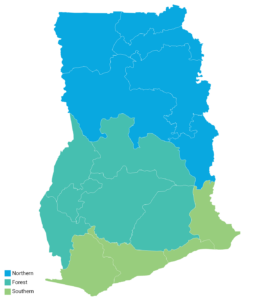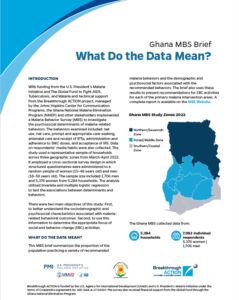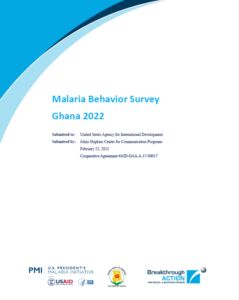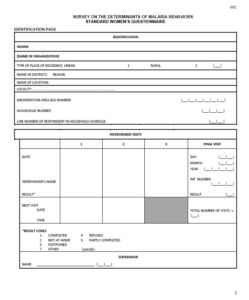Country results
The Ghana Malaria Behavior Survey was fielded in April 2022, and the survey results were released in 2023. The survey was carried out by the Breakthrough ACTION project in Ghana in collaboration with the National Malaria Elimination Program (NMEP), the U.S. President’s Malaria Initiative (PMI), and several other local organizations. Funding to implement the MBS was provided by PMI and the Global Fund (through the NMEP).
Study Zones

Survey Zones and Respondents
Key behaviors at a glance
88%
of caregivers intended to seek prompt and appropriate care for a child under five with fever in the future
44%
of nets were reportedly used every night in the last week
92%


